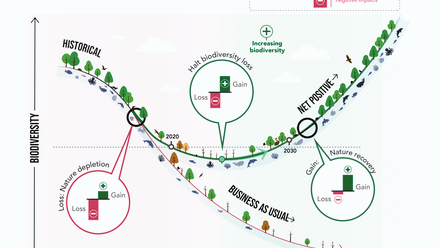Carbon database initiative for UK built environment launched
The Built Environment Carbon Database (BECD) is designed to be the main source of data for carbon estimating and benchmarking in the UK construction sector to support the decarbonisation of buildings and infrastructure.
Around 38% of global greenhouse gas emissions come from the built environment. If left unchecked, they are predicted to double by 2050.
BECD originated from the need to improve availability and consistency in the data that construction is using for carbon assessments.
In 2020, BCIS held an industry workshop with Arup and the University of Cambridge to explore how to improve the RICS Embodied Carbon Database. The results of the workshop clearly indicated the need for a more developed platform and the need to promote its use across all built environment professions.
This resulted in 10 built environment organisations coming together to form the steering group of BECD.
BCIS Chief Executive, James Fiske, said: "In the absence of government taking the lead and mandating carbon assessments in the built environment, it's up to us as construction professionals to do our bit to make sure that we can influence carbon emissions in any way, shape or form, no matter what job we are fulfilling in the industry. It's our ethical duty and our responsibility to do something about it."
Fiske said there are more than 60 carbon calculators in the industry, each working in different ways. Although that is a positive step towards starting to make the right decisions, it also presents problems.
Fiske added: "Because they are working in different ways and some are not necessarily compliant with the rules, it presents a challenge in being able to compare outputs and learn from each other. To use those tools and the rules, we need trained and competent people to be able to do it."
BECD provides a central free-to-access online data repository – it is not a calculator or software. It is intended to be a platform for the industry to share data and learn from each other. BECD is structured into two databases: one for asset data and one for product level emissions.
The asset section of BECD contains:
- the results of project-level carbon assessments, collecting embodied and/or operational carbon;
- key non-carbon data for specific benchmarking; and
- tracking of carbon as a project progresses.
All assessments published in 'full visibility' mode are available to download as a csv file.
The product section of the database contains the results of product-level carbon assessments. There are already more than 34,000 datapoints in BECD, primarily from EPDs, that are aligned with a BCIS classification system.
As the BECD develops, users will be encouraged to submit new data beyond EPDs, including EN 15804 assessments, product portfolio footprint assessments, lifecycle assessments (carbon only results), journal papers containing carbon data, and other carbon calculations.
Once submitted, data will need to be approved before being published. To help establish the sustainability of user data submitted, BCIS is developing a data quality framework that rates data against key criteria, including adherence to standards, level of external review, age of data, and supporting information available.
A materials database containing about 1,000 materials linked between cost and carbon values will be launched in November. It will also contain other essential information for the procurement process. This database will feed into a high-level lifecycle cost and carbon calculator that will be launched around January 2024.
This article first appeared on Construction Manager






